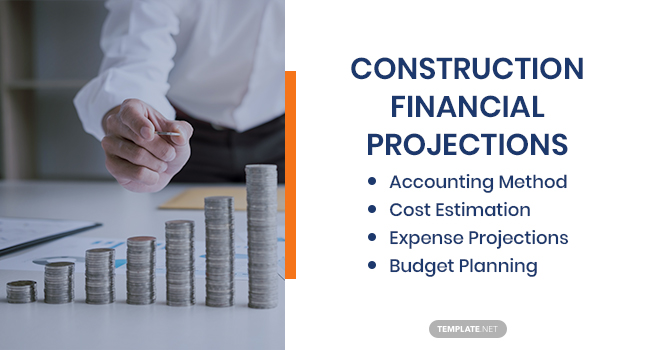How to Write a Construction Business Plan
According to a survey conducted by the professional services company Turner and Townsend in 2017, construction costs on the global scale will anticipate a rise of over 4.3 percent in 2018. Considering the current factors—high demand for residential, industrial, and infrastructure establishments, better equipment, useful technology, and modern software—there’s no denying that starting a construction business at this time will have its benefits.

How to Write a Construction Business Plan
Construction Market

The U.S., having one of the largest markets for construction, offers more than job openings, but also a chance for those interested in the business. Besides the legal documents and hiring methods, the strategies of a construction business have to center around providing professional and efficient services. This article will discuss the necessary information that construction companies should know to formulate a practical construction business plan.
Construction Business Description

Before going into details like employee counts or color patterns and logo, construction companies have to secure the summary and description of the enterprise. Whether it’s a residential construction business plan or a commercial construction project, the construction contractor or the business owner should organize the contents and the marketing strategies to use for promotion. Building construction is not an easy task to take on. It requires enough resources, skilled workers, and a foolproof plan. That’s why the owners should be sure about the purpose of the business. To avoid legal problems, construction companies should be aware of their capabilities and their ability as service workers for society.
Naming
- An intriguing name will spark the interest of viewers. Most importantly, the company becomes memorable to the reader, especially if it’s unique in its own taste. More than being informative with the work nature of the business, a business name should attract the right people for the right purpose. Moreover, the company name shouldn’t be too long or too short and confusing. It has to be catchy, easy to remember, and informative.
Type of Business
- The business description should include a concise definition of the construction business’s operations and services. The description must mention the business’s skills and qualifications, as well as the people involved in the enterprise. The type of business is relevant for the public and to the company as it invites the right clients. With a project that is suitable for the company, there will be progress for the organization.
Location
- Another important factor that should make a spot in the business description is the location of the site. This section also includes the contact information of the company, not limited to email addresses and the supervisors’ mobile number. Construction companies need to relay the message that customers can reach them through different means of communication. If the company has more than two headquarters, then it should be on the document.
Branding
- Having an identity—a construction branding—among hundreds of competitors places the construction company above others. Being distinct from other businesses is essential for a business, especially when there’s a lot of similar enterprises in the area. Branding, through the slogan, logo, catchphrases, and level of commitment, will increase the popularity of the business. Later, that leads to better revenues and returns on investment.
Construction Market Analysis

In creating a successful construction business plan, the company should employ different methods and actions. First on the list would be the analysis of the current trends in the construction industry. A market analysis, or the assessment of the demands and competition in the market, is vital for a business as it gives a more accurate view of the next goals of the construction company. Together with a swot analysis, the company can decide on the marketing plan to utilize for the business. Furthermore, doing a market analysis makes a difference for the company as it helps pinpoint the information that’s relevant in improving the situation of the enterprise.
Target Market
- After reading through the results of the market analysis, the company has to focus on the selected target market. By determining the trends in the target audience, the construction company can place their effort and energy on creating marketing materials that attracts the audience. Through construction flyers, Construction brochures, Construction posters, email newsletters, and billboards, the business can reach out to their selected market. Moreover, the company can focus on formulating plans that fit the needs of the target audience.
Competitive Analysis
- From the name itself, a competitive analysis identifies the largest and most domineering competitors in the market for the business. By doing thorough research, the construction company has details on competitors’ sales, marketing plans and strategies, products, and services. Some analysis includes the strengths and weaknesses of the competitors. After gathering the information, the construction business can create marketing strategies that can level with rivals.
Construction Operations

The next part of the construction business plan is the operations section. In this part of the business design, the owner and his or her company advisers can discuss the daily construction activities, daily quality reports, and daily progress reports for the projects that the business will undertake in the future. The operations also include the processes of handling bid proposals for construction projects and what bidding websites to use. Another section is equipment leases for particular projects and material receiving reports.
Technology in construction improves over time, so construction companies can always invest in making the tools they use in operations better. Overall, the operations segment of the business plan focuses on the activities that affect the company.
Bidding Process
- Depending on the project, there are times when the construction companies do not go through the bidding process. But in general, construction businesses partake in bidding to get the project. The procedure involves the company sending their proposals, otherwise called tender, to owners or investors. There are different forms of bidding, and the method that the contractor will use is reliant on the request of the owner. Whether the owner chooses open tendering, selective tendering, negotiation, or joint ventures, the contractor should take note and read the instructions. The construction company needs to write down actions regarding the bidding processes in the business plan.
Required Tools and Equipment
- The set of required tools and equipment matters to the business as it affects the construction operations. With that, these things should have a separate list in the business plan. These pieces of machinery have an impact on the productivity and reliability of the company, so it’s essential to make sure that vital tools are in the inventory. If the business plan includes anecdotes on possibilities of branching out, they can purchase the materials later.
Daily Operations & Production
- Construction business plans have to include construction report and assessment templates that contractors and inspectors can use when doing their daily checkup on projects’ progress. As each of these projects is timebound, the construction business should assure investors and stakeholders that the project will meet its completion date. The daily operations and production have to follow the predetermined construction schedules allotted for the projects to meet deadlines. With that, the construction business plan should possess the details of gathering project information.
Suppliers and Inputs
- Finding dependable and amicable suppliers can be tough for newcomers in the business. So before the construction company can incorporate their marketing plans and ideas, they have to find suitable suppliers for their future ventures. The strategists and other staff members can do research on the top suppliers in the country and choose the ones that fit their mode of business. They make agreements and contracts with these organizations for any upcoming project.
Systems and Processes
- Managing a construction company demands time and an efficient system of commands and processes. If the business has unorganized management, the whole organization will experience problems not only on the administrative level but also on the construction sites. Having a well-defined system makes it easier to trace where improvements and reductions go, an effective way to ensure the growth of the business. So in the business plan, there should be a comprehensive breakdown of the processes within the enterprise.
Risk Management
- Every construction company will face different forms of uncertainties—legal complaints and court battles, contract breaches, life to death circumstances. In avoiding a bigger dilemma on these possibilities, the construction company should prepare for the worst cases. Risk management is not only about the dangers of the operations, but it’s also about the other risks that come with the business. In the business plan, the organizer and author should note these possible liabilities.
Construction Management

A construction company with disorganized and unstable management will not gain clients and suppliers, much more the right investors and stakeholders. Therefore, it’s crucial to have balanced and well-informed management when leading a construction business to greater heights. The administration handles the schedule management plan and communications management plan to make sure that workers can perform their respective work effectively. Importantly, they are responsible for the safety and environmental management plan to provide enough security for everyone. Through the quality management plan and performance management plan, the head office can discuss changes in construction management plan for the benefit of the people in the business. Overall, they oversee many departments and processes and decide on many things in the company.
Construction Financial Projections

A business plan serves multiple purposes for a company. On one hand, it acts as a schedule for the procedures that the business will tackle over a few months. And on the other, it also provides an accurate representation of financial projections that the company will experience at a particular time in the fiscal year. Through equipment cost analysis, building cost analysis, research on trends, and the review of previous records in project cost analysis, the company can come up with better plans. Aside from that, through the expense account forms, cash flow worksheet, and final account cost report, these accountants can have a better evaluation of the overall expenditures of the company. Financial projects help construction companies with their estimations for the upcoming months or years.
Accounting Method
- The finance department follows two accounting methods to correctly measure the revenues and expenses of a construction company. The cash accounting process is the simple method which only involves the money received and paid by the business. Accrual accounting, on the other hand, marks when the inflow and outflow of funds actually happens. While cash accounting measures the numbers, accrual accounting focuses on the fluctuations of the finances.
Cost Estimation
- Construction companies have to make cost estimation reports on the projects they will handle over months or years. By recognizing the costs of these projects, the contractor can do calculations on budget adjustments and increase or decrease the charges on the owner of the project. Furthermore, the team can identify tools and equipment that can have substitutes if the pricing is too much for both parties.
Expense Projections
- Unlike cost estimation, expense projections deal with the ongoing operational expenditures of a business. Some examples would be the rent of offices and storage rooms, insurance for workers, advertising materials, and legal fees. The expenses under this section are not directly related to the needs of the construction of the project. Instead, these indirect costs concern the management handling the project.
Budget Planning
- By knowing the estimated costs for some projects and the maintenance of offices and departments, the finance department can determine the budget for that particular timeframe. As the funds of a company have limitations, it’s best to plan for the allocation of funds. By utilizing budget planning, the construction business can avert unexpected deficits and make sure that all offices are functional and projects can continue the work.
Construction Advertising and Marketing Strategies

For any business, advertising and marketing strategies are essential for gathering the right audience and clients. In a construction business, organizers can use different forms of advertisement tools. Here some points that construction companies can use for their marketing strategy plans.
- An email marketing plan is an effective way of announcing new deals and discounts in construction plans or services. Today, sending emails is an uncomplicated method of advertising product rebates.
- Advertising leaflets and Advertising flyers are a standard contractor strategic plan that head officers can pass on to new clients or current stakeholders.
- Construction service advertisement doesn’t need bright colors and many celebrities, sometimes it needs a simple document that provides necessary information for the benefit of the readers.
Construction companies can utilize a marketing checklist to monitor the options they have and select the ones that suit their tastes and preferences.
Tips for Writing A Construction Business Plan

Business plans, even a simple business plan, can help in a company’s financial and internal growth. With these instructions and goals, the construction business has a more precise direction—an objective that the business wants to attain. So, here are some tips for writing a construction business plan.
- Whether it’s a small business plan or a more comprehensive project plan, the creators of the document have to list down goals. These objectives should match the branding of the enterprise.
- The business plan should focus on the execution plan for projects to avert disasters with clients and suppliers.
- Construction businesses have to create action plans for the benefit of the enterprise. An action plan outlines the schedules and specific actions for the activities to utilize time and energy.
- The owners will have to know the assessment results from previous plans to make the current plan better.
- Always prioritize the safety of the members in the business.






